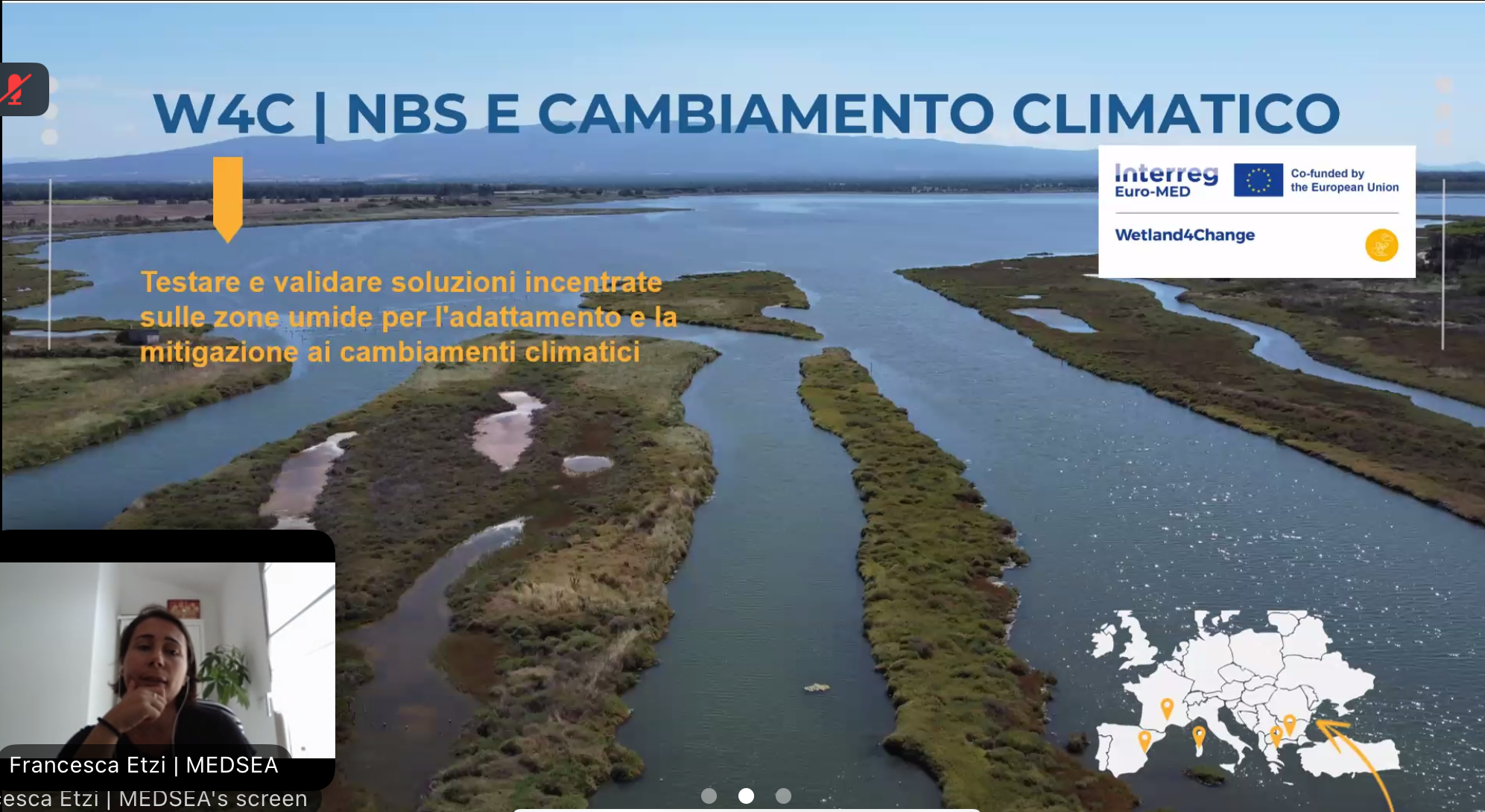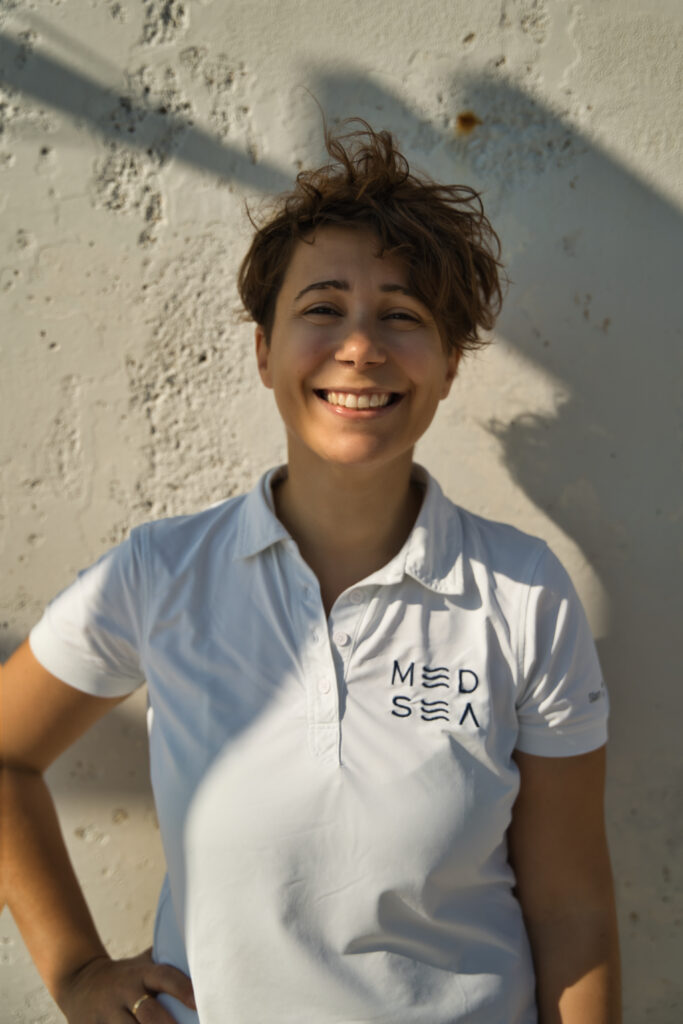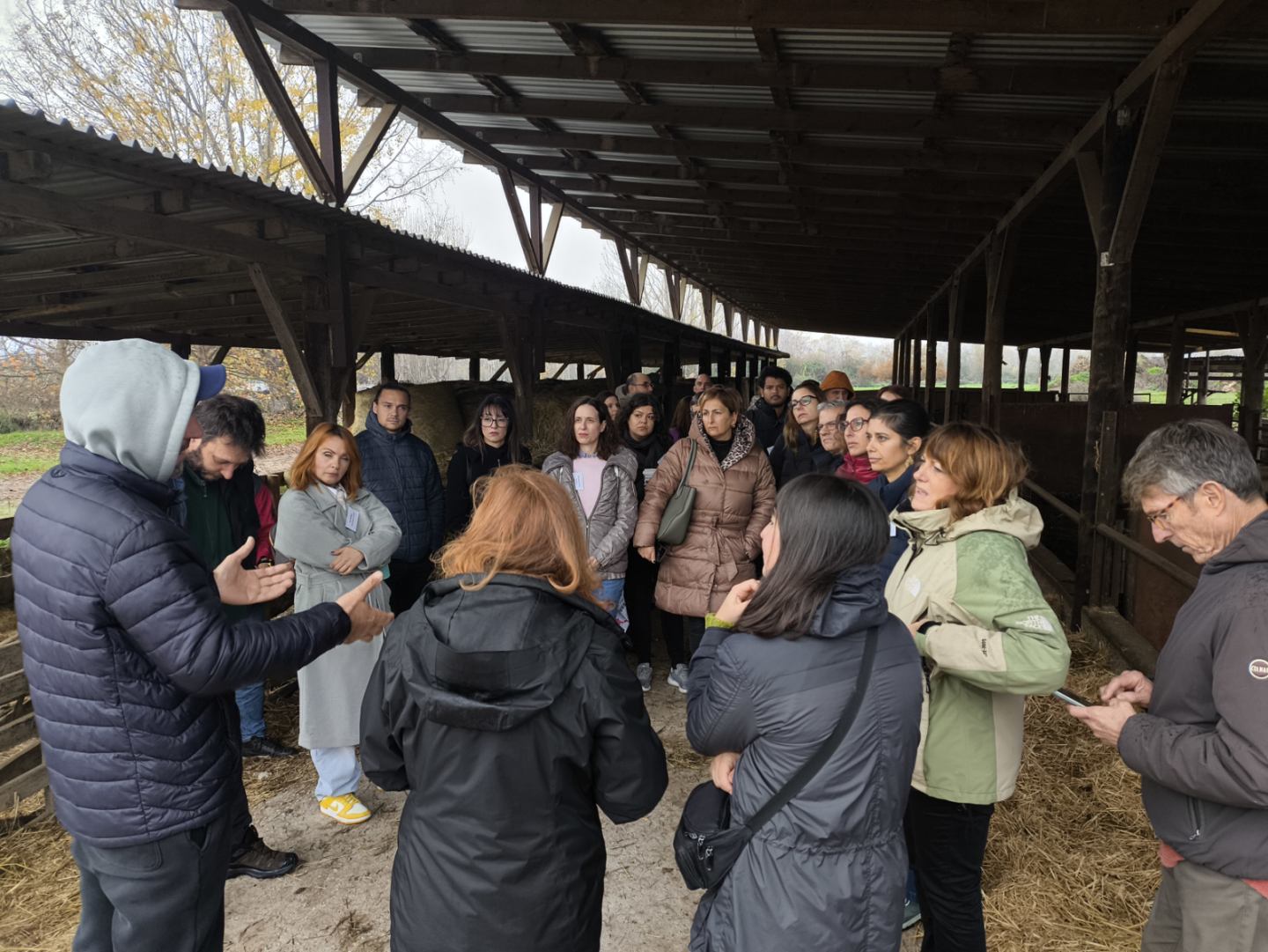Today, the MEDSEA Foundation partner of the Wetland4Change project took part in the VII national webinar titled “Le aree umide costiere ed i laghi salmastri – formazione, biodiversità, valore ambientale, tutela e valorizzazione”-“Coastal Wetlands and Saline Lakes – Training, Biodiversity, Environmental Value, Protection and Enhancement.”
The event was organized by SIGEA (Italian Society of Environmental Geology) in collaboration with the National Council of Geologists, and saw the participation of over 170 attendees, including professionals, researchers from across Italy.
WETLANDS AS NATURE BASED SOLUTIONS
MEDSEA Foundation rappresented by Francesca Etzi, contributed to the session with a presentation titled “Le zone umide: una soluzione basata sulla natura” (Wetlands: a Nature-Based Solution). Her presentation emphasized the role of wetlands as powerful allies in the fight against climate change, highlighting their multifunctionality in storing carbon, regulating flooding and supporting biodiversity.
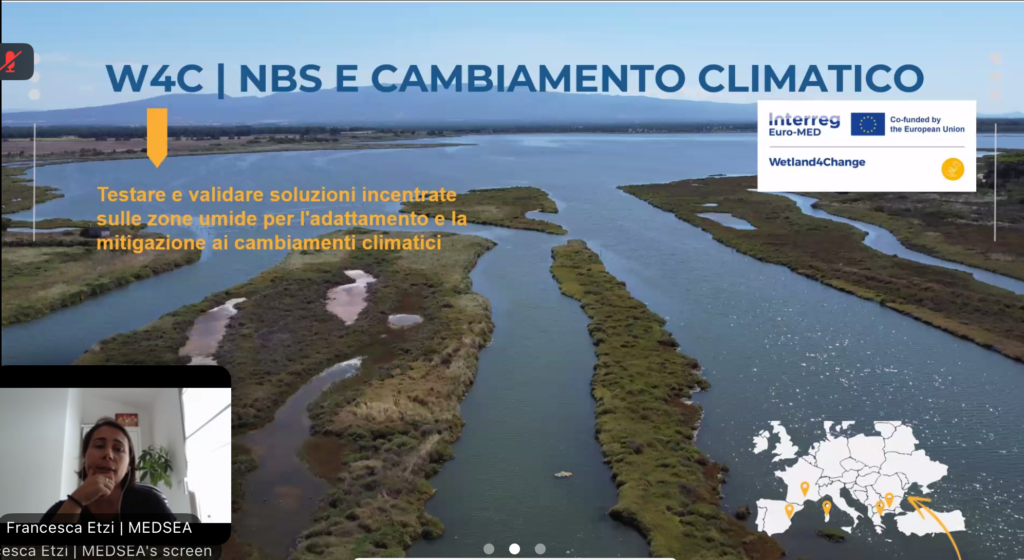
As a concrete example, she presented the work carried out through the Wetland4Change project and shared insights from the recent Living Lab held in the Marceddì lagoon, located in Sardinia, one of the five pilot sites of the project where all partners conducted a carbon sampling activity aimed at calculating the amount of carbon sequestered by the lagoon.
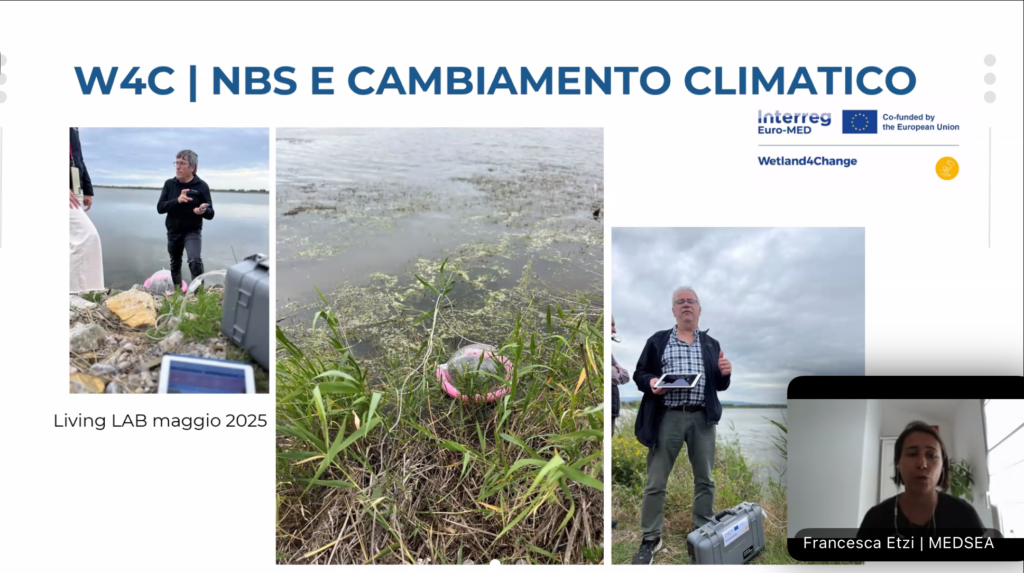
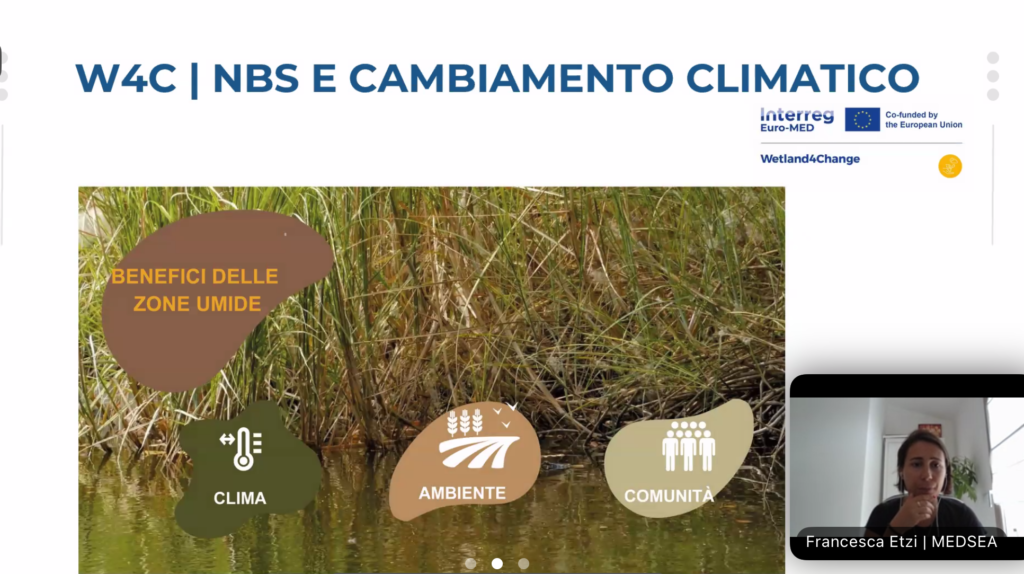
This initiative underscores the importance of carbon sequestration as a key component of Nature-Based Solutions (NBS). By quantifying the carbon stored in wetlands, such actions not only contribute to global climate targets but also help to recognize the ecological and climate-regulating value of these ecosystems in local and regional planning.
The presentation also highlighted the value of inclusive governance: engaging local communities and decision-makers ensures stronger awareness, commitment, and shared responsibility in preserving wetland areas.
Francesca Etzi – MEDSEA Foundation
“One of the key functions of wetlands is carbon absorption, and what we are doing in this project is trying to understand how much they absorb and what interventions are needed to increase their absorption capacity“, says Francesca Etzi stressing the need to collaborate with local stakeholders to improve the wetland’s capacitiy as she continues “Two of the most important actions are the involvement of the local community and listening to their needs in order to protect and enhance wetlands, and secondly, the monitoring of results to identify areas for improvement in the proposed solutions and potentially transfer these solutions to other areas using the lessons learned.”
The event featured additional expert contributions on the biodiversity of transitional waters, the management of lacustrine and brackish areas, and the conservation of rare coastal plant species, offering a comprehensive perspective on the future of Italian wetland ecosystems.

